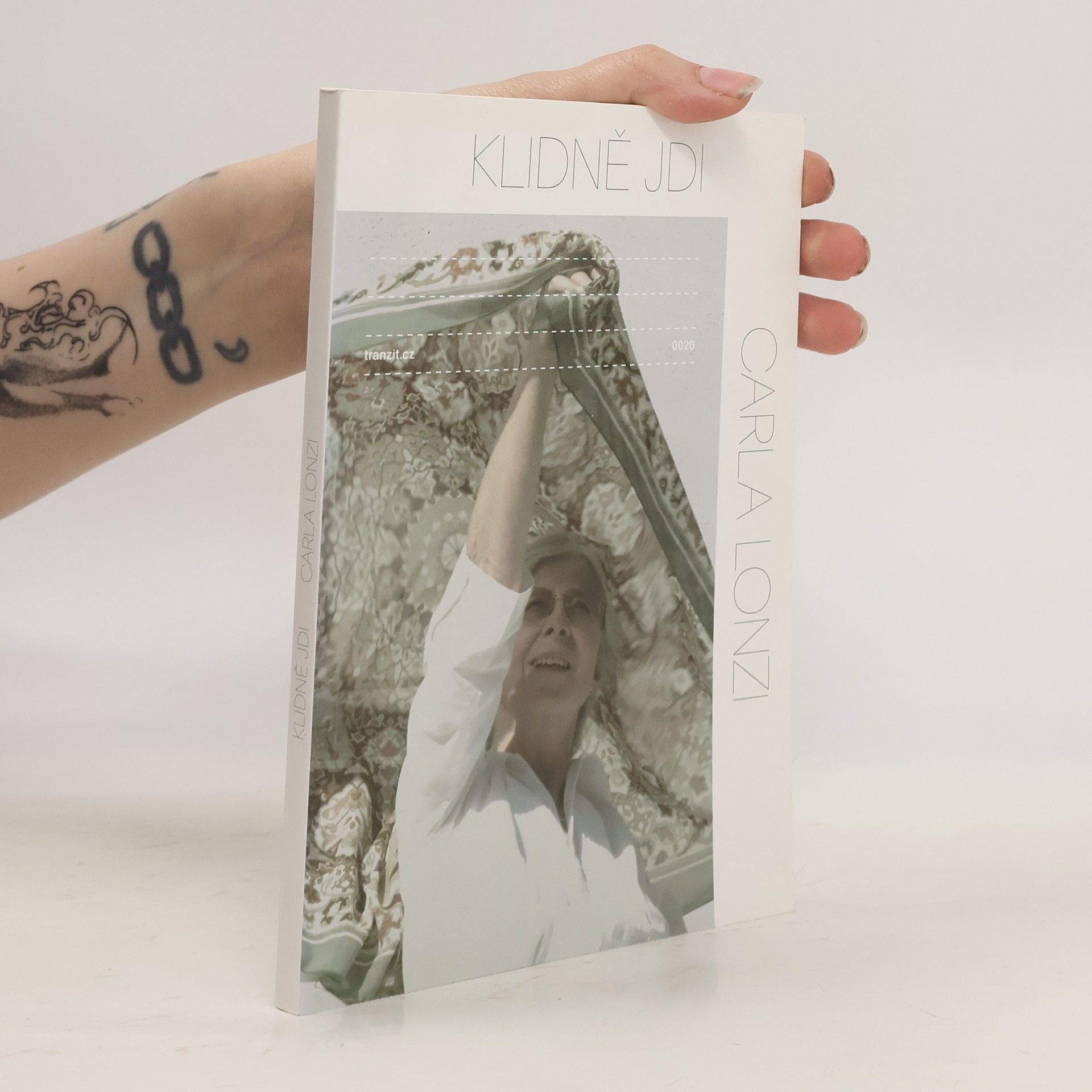Recorded and transcribed throughout the 1960s, Carla Lonzi's Self-portrait ruptures the linear tradition of art-historical writing. Lonzi first abolishes the role of the critic, her own, seeking change over self-preservation by theorising against the act of theorising. This is the voice of feminist experimentalism in Italian art and literature, and here Lonzi speaks for herself in English. Self-portrait montages her verbatim conversations with fourteen prominent artists working at the time, all men except one. Lonzi's vital feeling that it was impossible to respond professionally to the political and existential problems embedded in the production and distribution of artworks drives the book's contingent structure. Artmaking struck Lonzi as the invitation to be together in a humanly satisfying way. This first English translation brings Lonzi's final work of criticism before her break with 'art' to an international audience. Her uncompromising enactment and pragmatic drop-out discontinues the narration of postwar modern art in Italy and beyond.
Carla Lonzi Livres




Klidně jdi – rozhovor s Pietrem Consagrou
- 115pages
- 5 heures de lecture
Kniha je záznamem skutečného čtyřdenního rozhovoru téměř padesátileté ženy a muže na prahu šedesátky – páru, který se ocitl na rozcestí. Rozhovor dvou lidí po patnácti letech společného života vypovídá o palčivém napětí mezi uměním a životem, láskou a kariérou, ale také péčí a kapitalistickou patriarchální společností. Pietro Consagra je etablovaný italský umělec, Carla Lonzi je revoltující intelektuálka, důležitá postava feministického hnutí. Pietro potřebuje být hýčkaný a podporovaný, aby mohl pokračovat ve svém poslání umělce, jež je pro něj vším. Carla má také své potřeby. Sní o něčem, čemu říká autentický vztah, který nebude podřízený nějakému poslání. On touží po tom, aby měl prostor tvořit umění a žít jako umělec – svůj život si ani jinak představit nedokáže. Ona chce prožívat sám vztah jako umělecké dílo – bezúčelně. Ani jeden se nechce vzdát. Nakonec říká Carla Pietrovi: „Klidně jdi.“ Doslov Tereza Stejskalová.
Selbstbewusstwerdung
Schriften zu Kunst und Feminismus
"Selbstbewusstwerdung" versammelt ausgewählte Rezensionen, Manifeste, Gespräche und theoretische Texte der italienischen Kunstkritikerin, feministischen Autorin und Aktivistin Carla Lonzi (1931-1982). Diese bislang im Deutschen nicht zugänglichen Kunstkritiken und Schriften beleuchten nicht nur Lonzis Beitrag zum italienischen und internationalen Kunstdiskurs der späten 1950er und 1960er Jahre, sondern weisen darüber hinaus eine spezifischen Versuch der Verknüpfung von Kunst mit Institutions- und Gesellschaftskritik auf. Nachdem sich Lonzi 1969 mit ihrer experimentellen Interview-Montage Autoritratto/ Selbstbildnis - Zur italienischen Kunst um 1967 (dt. Gachnang & Springer 2000) von der Kunstkritik verabschiedet hat, avanciert sie mit der 1970 von ihr mitgegründeten Gruppe Rivolta Femminile zu einer emblematischen Figur der italienischen Frauenbewegung. Das Buch zeichnet anhand ausgewählter Texte diesen Weg Lonzis von der Kunstkritikerin zur feministischen Theoretikerin nach. Das Buch enthält ebenso sezierende Analysen des Kunstbetriebs und der Frauenbewegung wie dezidierte Vorstellungen, wie eine Emanzipation der Frau möglich ist. Vor dem Hintergrund (stets) aktueller Genderdebatten sind Lonzis Texte und Analysen in ihrer Verbindung von Marxismus und Feminismus unausgesetzt relevant.